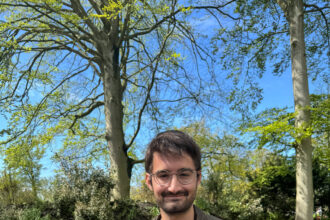Etymology

Unlock the Pulse of the Present
Subscribe Now for Real-time Updates on the Latest Stories!
Popular News
Where Is Trump’s Plan To Cut Spending?
Former President Donald Trump was asked about the possibility of eliminating the federal income tax…
Is Krill Oil All It’s Hyped up to Be? Exploring the Benefits and Drawbacks
Krill oil, with its abundance of omega-3s and potent antioxidants, is gaining popularity as a…
Are Elon Musk and Vladimir Putin Talking?
The billionaire has allegedly maintained consistent communication with the Russian president, raising further questions about…
Mounties Bust Massive BC Drug ‘Superlab’ Linked to Transnational Organized Crime
Canadian authorities have successfully dismantled what they describe as the largest and most advanced illicit…
Latest Etymology
SWEEPING BALAYAGE
When it comes to the word balayage, it actually has two distinct meanings. In the world of cosmetics, it…
OPERATIC WORK
The term opera was first introduced into English language in 1648 as a borrowed Italian word, with its first…
SWOONING SOUNDS
The term swoon originated from the Old English verb swogan and has evolved over time. It was first documented in a 1290 manuscript…
MANY FRIGHTENING THINGS
The term bug when referring to a computer malfunction has a history dating back to the 1870s, where engineers…
FRIENDS AND FISH
The word chum presents a fascinating etymological puzzle. Its meaning as "friend" first appeared in the late seventeenth century among students…
STONES AND SKETCHES
Today, I explored some exquisite cameos at the Medici exhibit in the Metropolitan Museum of Art and found myself…
BREAD CRUMB
Panko, the brand of bread crumb used in Japanese cuisine, derives its name from the Japanese words for "bread", pan,…
BATH STEW
The term stew has an interesting origin, coming from the Old French verb estuver, which meant "have a hot…








